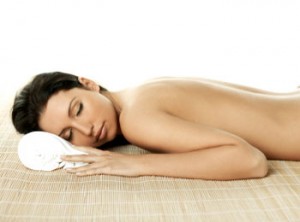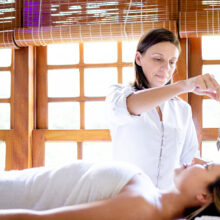Study: Massage Works Out More Than Just Muscle Kinks
- Published: Wednesday, September 22nd 2010
- in Mindset

We all know a good massage usually makes you more relaxed and does wonders for your body, but does it really affect what’s going on inside your body? According to a group of researchers who recently conducted a study to find out, yes.
Massage therapy is a multi–billion dollar industry in the United States with 8.7% of adults receiving at least one massage within the last year. With the industry growing and little being known about the physiologic effects of a single session of massage in healthy people, researchers at Cedars-Sinai Medical Center in Los Angeles set out to learn more, recruiting 53 healthy adults and randomly assigning 29 of them to a 45-minute session of deep-tissue Swedish massage and the other 24 to a session of light massage.
Blood samples were taken immediately before the massage and up to an hour afterward, which revealed that a single session of massage did in fact produce measurable biological effects having to do with stress, contentment and the immune system.
In the Swedish massage subjects, researchers saw significant decreases in levels of the stress hormone cortisol in blood and saliva, and in arginine vasopressin, a hormone that can lead to increases in cortisol. They also saw increases in the number of lymphocytes, white blood cells that are part of the immune system.
Volunteers who had the light massage experienced greater increases in oxytocin, a hormone associated with contentment, than the Swedish massage group, and bigger decreases in adrenal corticotropin hormone, which stimulates the adrenal glands to release cortisol, the stress hormone.
Dr. Mark Hyman Rapaport, the lead author of the study and chairman of psychiatry and behavioral neurosciences at Cedars-Sinai, said in the New York Times that the findings were “very, very intriguing and very, very exciting — and I’m a skeptic.”
If you’re a bit of a skeptic as well, conduct a little research on your own by booking a massage, Swedish or otherwise, during Deal Days, The Wellness Week, going on now, and let us know if you’ve noticed a decrease in stress and an increase in contentment!
The study, sponsored by the National Center for Complementary and Alternative Medicine, a division of the National Institutes of Health, was published online in The Journal of Alternative and Complementary Medicine on Sept. 1, 2010.


